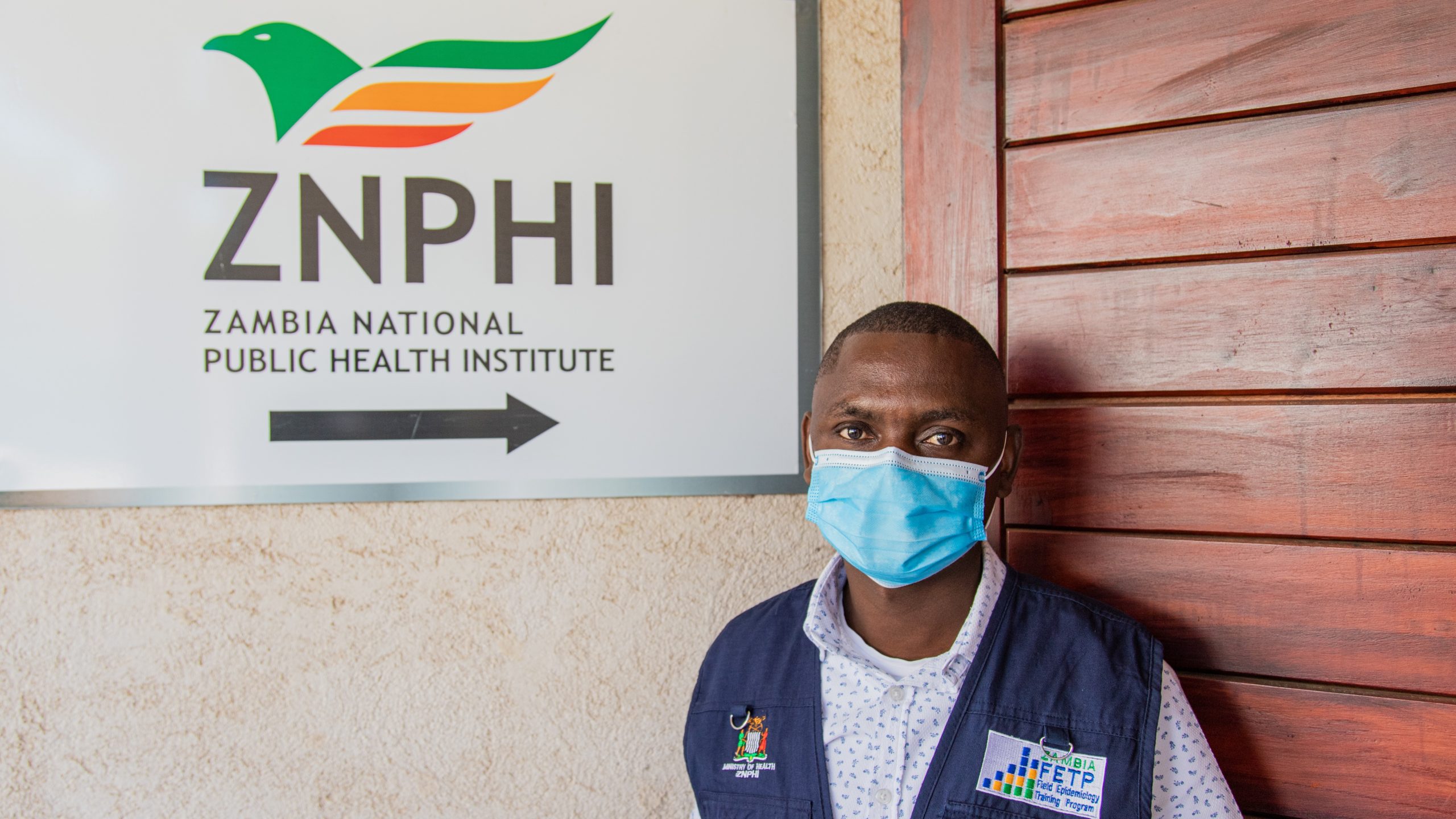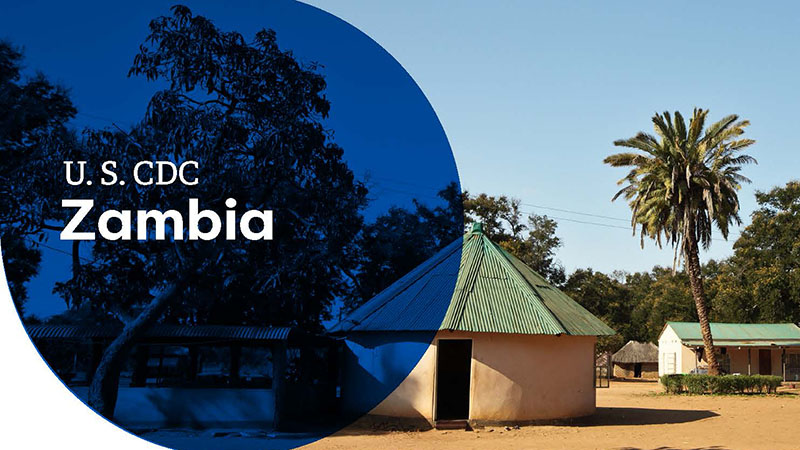At a glance
CDC works with the Zambia Ministry of Health (MOH) and other partners to build effective public health collaboration and partnerships, which strengthen the country's core public health capabilities: data and surveillance, laboratory capacity, workforce and institutions, prevention and response, innovation and research, and policy, communications, and diplomacy.

Overview

CDC has worked in Zambia since 2000. CDC Zambia works closely with the Government of Zambia, MOH, Zambia National Public Health Institute (ZNPHI), and other partner organizations to detect, prevent and control infectious disease outbreaks and build and strengthen the country's core public health capabilities. These include data and surveillance, laboratory capacity, workforce and institutions, prevention and response, innovation and research, and policy communications and diplomacy. CDC's work aims to protect the health of our nations and public health around the world.
Global health security
Public health systems
CDC supports public health systems strengthening in Zambia by engaging in:
- Enhancement of epidemiology, disease surveillance, program monitoring, and health information systems such as the supporting the development of SmartCare, a national EMR system for clinical care and continuity, providing confidential records.
- Establishment and continued support of the Zambia NPHI to strengthen public health surveillance and the capacities to detect and respond to health threats and serve as an NPHI Center of Excellence, supporting other NPHIs in the region.
- Evaluations to assess program impact and inform rapid adjustments to address the evolving HIV epidemic.
- Support of the Government of Zambia to lead public health responses.
- Support of local organizations to provide health services at the national and community level.
Workforce development
CDC supports training scientists through the Field Epidemiology Training Program (FETP), established in Zambia in 2014. FETP trains epidemiologists to perform disease surveillance and contain outbreaks of diseases like HIV, tuberculosis, cholera, polio and COVID-19. Participants learn critical skills for data collection and analysis and using data to inform action.
CDC also supports the expansion of academic and clinical training programs in the University of Zambia and the University Teaching Hospital and the use of the ECHO (Extension for Community Healthcare Outcomes) platform to enhance training and mentorship.
Emergency response
CDC works to strengthen the capacity of Zambia's emergency response. During the COVID-19 pandemic, CDC Zambia supported vaccination campaigns, disease surveillance strategy, and contact tracing, leveraging the existing laboratory network as the backbone of the COVID-19 laboratory network. This allowed for the development of:
- COVID-19 clinical guidelines for case management
- Health informatics
- Science-based public health communication for Zambians
- Epidemiologic studies
Key achievements
- Over 95% of people on antiretroviral therapy (ART) have an electronic health record.
- 54 Zambians completed the two-year Advanced FETP and 320 completed the three-month Frontline FETP since 2016.
- In just four years, the Extension for Community Health Outcomes (ECHO) program expanded to 367 health facilities across all of Zambia's 10 provinces.
- CDC helped train more than 500 public health workers and more than 1,000 clinicians in COVID-19 prevention, response, mitigation, and management.
HIV and TB
As a key implementer of the U.S. President's Emergency Plan for AIDS Relief (PEPFAR), CDC plays an essential role in the fight against HIV and TB. With unmatched scientific and technical knowledge and long-standing relationships with ministries of health, CDC is uniquely positioned to advance HIV, TB, and other global health security activities that keep Americans safe at home and abroad.
Through PEPFAR, CDC provides critical support to Zambia's public health infrastructure, improving the country's ability to prevent, detect, and respond to HIV, TB, and other infectious diseases and minimizing their risk from entering the U.S.
Non-communicable diseases
Women living with HIV experience increased risk of human papillomavirus (HPV) and cervical cancer. Before the introduction of ART, women living with HIV were not screened for cervical cancer. With CDC support, Zambia launched a long-term, culturally appropriate, community-based training program in community health promotion to address cervical cancer.
Through PEPFAR, CDC also provides policy and clinical guidance for integration of non-communicable disease management including hypertension, diabetes, mental health, and other comorbidities for people living with HIV.
Key achievements
- As of September 2023, cervical cancer screening services are available in nearly 1,311 of the 2,019 health facilities across the country, which represents 65% screening coverage.
- More than 850,000 women were screened for cervical cancer in 2021.
- More than 924,000 adolescent girls have been fully vaccinated against HPV in Zambia since 2018.
Malaria
CDC has collaborated partners to support implementation of malaria prevention and control activities in Zambia since 2006. CDC has contributed to the development and monitoring and evaluation of activities, including:
- Providing long-lasting insecticide-treated nets and indoor residual spraying
- Preventing malaria in pregnancy
- Enhancing diagnostics and case management
Key achievements
- CDC supported implementation of the 2018 and 2021 Malaria Indicator Surveys.
- CDC supported development and implementation of a national insecticide resistance-monitoring program.
